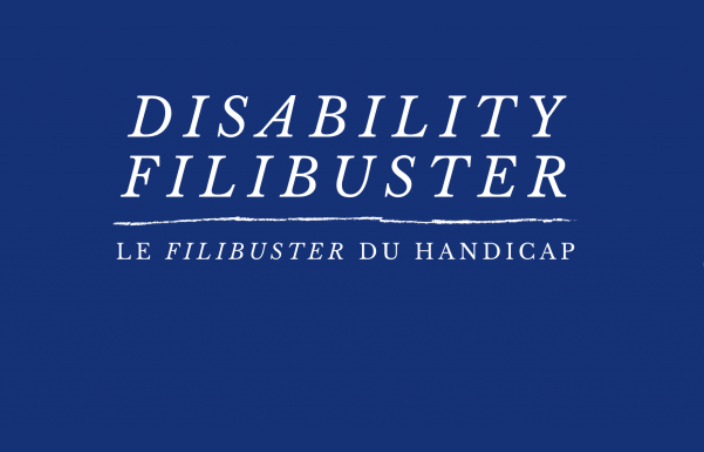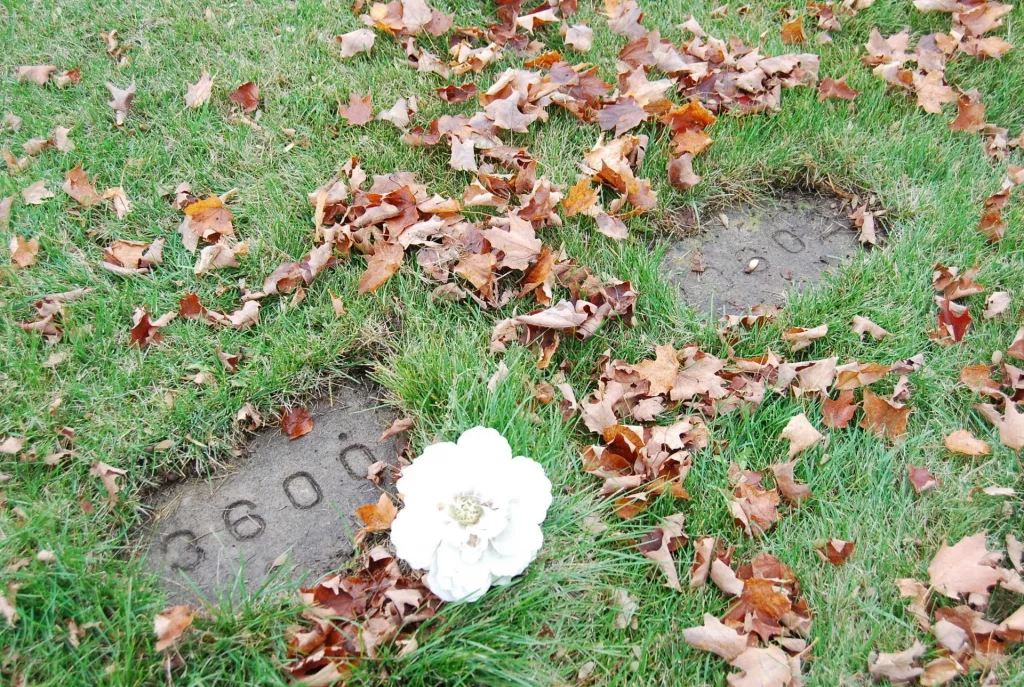Life and Death in Canada’s Institutions
In memoriam of Archie Rolland, Chris Gladders, Sean Tagert & all those killed by confinement.
Episode description
In 2021, Canada expanded access to medical assistance in dying to all people with disabilities who suffer as a result of their condition. These changes expand access to death at a time in Canada, when people labeled with intellectual and developmental disabilities are criminalized and institutionalized by the state.
This episode includes footage from the Freedom Tour documentary, and the Disability Filibuster. Featuring testimonies by Catherine Frazee, Sarah Jama, and Jonathan Marchand. Interview with Inclusion Canada’s Natalia Hicks.




Show Notes
“Intellectual disability or disability in general should never be a Criterion for Access to MAiD. With the necessary support and appropriate accommodations people with intellectual disabilities can live fulfilling and rich lives. If people find themselves living with intolerable suffering related to their intellectual disability it is because society does not include them and they lack services.” – Amelie Duranleau from the La Société Québécoise de la Déficience Intellectuelle.
This episode included the testimonies, expertise and knowledge of several community organizers including:
- Sarah Jama: Sarah Jama is a community organizer from Hamilton, Ontario. She is co-founder of the Disability Justice Network of Ontario (DJNO) and holds a Social Sciences degree from McMaster University. Her lived experiences have fostered interests and a passion for: community engagement, disability justice, and activism. Her testimony is here.
- Catherine Frazee: Frazee’s current research explores ableist accounts of autonomy and ableist formulations of “a good death”. These inquiries are a continuation of many years of advocacy in legal and policy spheres, seeking to protect the lives and valued personhood of Canadians with disabilities. Frazee’s work has involved extensive community dialogue, contributions as an expert witness before the courts, strategic advice to national disability organizations, debates and panel discussions in a variety of public fora, submissions to senate and parliamentary committees, commentaries for mainstream media and published long-form essays in popular and specialty journals. Her testimony is here: https://vimeo.com/477721742
- Jonathan Marchand: Activist and disability rights defender. President at ASSIST Coop – Quebec cooperative for independent living. His testimony is available here: https://www.youtube.com/watch?v=j6Hm7c2ZqCA
You can support the Disability Filibuster via their GoFundMe, watch all of their amazing content on their website, and stay plugged into their programming via their twitter and instagram. Disability Filibuster was co-founded by Catherine Frazee and Gabrielle Peters, check out their interview with James Wilt for Canadian Dimension.
This story includes reference to multiple deaths, outlined below:
Jean Truchon: One of two Quebecers who successfully argued for the expansion of MAiD in Canada. Institutionalized in a long-term care facility, he explained his death to the media: ““The coronavirus has literally stolen my time with those I love. Seeing what is coming frightens me the most. Therefore, I made the decision to leave now and this was well thought-out.”
Sophia via CTV News: “A 51-year-old Ontario woman with severe sensitivities to chemicals chose medically-assisted death after her desperate search for affordable housing free of cigarette smoke and chemical cleaners failed, advocates say.”
Chris Gladders: A disabled father in Hamilton, Ontario. In a Global News article: “They didn’t have a Hoyer lift or anything to move him, bathe him, anything. It was just so sad.” His brother shared,
“It might be too late for my brother, but if it can just help one other family or one other person or even one other resident that’s in that place …”
Archie Rolland in the Montreal Gazette: “Montreal landscape architect Archie Rolland vowed to end his life rather continue to suffer at a long-term care facility in Lachine he said was treating him inhumanely. On July 4, Roland fled the facility. Three days later, he was dead.”
Sean Tagert was a father with ALS who fought against institutionalization. Tagert was given two options: to be institutionalized, apart from his child, or to die. Tagert fought for another option: expand home care services. The province denied his request for an extra 4 hours a day of home care.
We talk about institutional deaths in every episode this season, you can see the remembrances at the top of each episode.
Episode 1: The deaths of babies, children, and inmates in unmarked graves at the Rideau Regional Center and Huronia Regional Centre.
Episode 2: The deaths of Jean Marie Martel and Elijah Sanderson at the Rideau Regional Centre
Episode 3: The death of Joyce Gibbins at the Manitoba Developmental Centre
Episode 4: The death of 20,000 institutionalized people with disabilities from COVID-19.
Episode 5: The death of generations of people labelled with intellectual disabilities through eugenics in Alberta.
Episode 6: The death of Stephanie Jobin by restraint at a group home in Ontario.
This episode included a quote from the journal article by Peter Driftmier and Jessica Shaw in 2021. The article, Medical Assistance in Dying (MAiD) for Canadian Prisoners: A Case Series of Barriers to Care in Completed MAiD Deaths is available open source.
You can support people pursuing MAiD due to structural ableism here:
ASEQ: Housing for MCS – Logement pour SCM-MCS via their GoFundMe: “Sophia: She was granted medical assistance in dying (MAiD) rather than help her find a suitable place to live. How did this happen in our Canada? Don’t let it happen again!”
A Life Worth Living – Help Us #SaveGwensLife via GoFundMe: “Please help us save our friend, Gwen*, who is in severe and debilitating chronic pain with no end in sight. Unable to afford treatment, Gwen has approached doctors about MAiD (Medical Assistance in Dying)”.
Fighting to change MAiD Legislation: “Police in Abbotsford, B.C. confirm they are investigating the medically-assisted death of a 61-year-old woman whose daughters say should not have been approved for the procedure based on the state of her mental health at the time” via reporting by Avis Favaro.
Episode Credits
Invisible Institutions was created by me, Megan Linton, with support from People First of Canada & Inclusion Canada’s Joint Task Force on Deinstitutionalization. Audio recording by Megan Linton. This episode was advised by the Joint Task Force on Deinstitutionalization. Audio post-production and sound design were by Helena Krobath, and our theme music was composed by Bara Hladik. Additional voice acting provided by Alex Johnston, who is the nicest person who helped voice all the worst policies this season. Helena Krobath provided the additional ethereal & haunting voice acting. Special thanks to Natalia Hicks, Tim Stainton, Sarah Jama, Aisha Bensilmane, Catherine Frazee and the wonderful creators and narrators of the Freedom Tour.
Tracks

Bara Hladik: Invisible Institutions Theme Song
Zlata: Cosmosis – Atmosphere
Zlata: Cosmosis – Mitochondria
Zlata: Cosmosis – Hermit
Zlata: Cosmosis – Circulation
Zlata: Cosmosis – Erudition
From the Freedom Tour: Free the People
From the Freedom Tour: We Gotta Close the Institution
Additional music by Helena Krobath
Works Cited & Consulted
Assisted-death bill sends wrong message to Indigenous people, advocates say | CTV News. (2021). via https://www.ctvnews.ca/politics/assisted-death-bill-sends-wrong-message-to-indigenous-people-advocates-say-1.5202346?cache=szcuxcmsiqb%3FclipId%3D104056
Benson, S. (2022, May 18). Impoverished Canadians accessing MAiD victims of “systemic coercion,” say disability advocates. Hill Times. https://ocul-crl.primo.exlibrisgroup.com/permalink/01OCUL_CRL/1ortgfo/cdi_proquest_miscellaneous_2669097801
CBC News. (2022, April 7). Canadian inmates still face isolation amounting to torture, experts say. CBC. https://www.cbc.ca/news/canada/montreal/federal-inmates-solitary-confinement-enquete-1.6410882
Disability Filibuster. (2022, May 31). Carceral Ableism & Confinement: The deadly role of institutions and carceral ableism and the ongoing expansion of MAiD (2.8) [Panel]. In Disability Filibuster. https://www.youtube.com/watch?v=MX29GeP9SH0&feature=emb_title
Disability is not a reason to sanction medically assisted dying – UN experts. (2021) via https://www.ohchr.org/en/press-releases/2021/01/disability-not-reason-sanction-medically-assisted-dying-un-experts
Downar, J., Fowler, R. A., Halko, R., Huyer, L. D., Hill, A. D., & Gibson, J. L. (2020, February 24). Early experience with medical assistance in dying in Ontario, Canada: A cohort study. CMAJ: Canadian Medical Association Journal, 192(8), E173-. Gale Academic OneFile.
Driftmier, P., & Shaw, J. (2021). Medical Assistance in Dying (MAiD) for Canadian Prisoners: A Case Series of Barriers to Care in Completed MAiD Deaths. Health Equity, 5(1), 847–853. https://doi.org/10.1089/heq.2021.0117
Fritsch, K., Monaghan, J., & Van der Meulen, E. (2022). Disability injustice: Confronting criminalization in Canada. http://public.eblib.com/choice/PublicFullRecord.aspx?p=6871670
Grace, A. (2019, October 27). The end of solitary confinement in Canada? Not exactly. The Conversation. http://theconversation.com/the-end-of-solitary-confinement-in-canada-not-exactly-124679
Inclusion Canada. (2022, June 27). The Fight Continues: The Potential Expansion of Canada’s Medical Assistance in Dying Legislation – Inclusion Canada. Inclusion Canada. https://inclusioncanada.ca/2022/06/25/the-fight-continues-the-potential-expansion-of-canadas-medical-assistance-in-dying-legislation/
Janz, H. L., & Herx, L. (2021). A dangerous path: Why expanding access to medical assistance in dying keeps us up at night. The Conversation. From http://theconversation.com/a-dangerous-path-why-expanding-access-to-medical-assistance-in-dying-keeps-us-up-at-night-153540
Lalancette, M., Yates, S., & Rouillard, C.-A. (2020). #Participating #Contesting: Studying Counterpublics’ Discourses on Twitter About the Social Acceptability of Medical Assistance in Dying Legislation in Canada. Canadian Review of Sociology, 57(4), 604–632.
Linton, M. (2021, June 8). Disability, Death & the Fight for Justice. Visibility Project. https://disabilityvisibilityproject.com/2021/06/08/disability-death-the-fight-for-justice/
Malhotra, R. (2022). The Politics of Death-Making/Assisted Suicide: A Castoriadan Reading. In K. Fritsch, J. Monaghan, & E. Van der Meulen (Eds.), Disability injustice: Confronting criminalization in Canada. http://public.eblib.com/choice/PublicFullRecord.aspx?p=6871670
Moore, D. (2007). Criminal artefacts: Governing drugs and users. UBC Press.
Newman-Stille, D. (2019, October 17). Derek Newman-Stille | Patient Killers: Angel of Mercy Crimes and Disabled Subjectivities | Town Crier. The Town Crier. http://towncrier.puritan-magazine.com/patient-killers-angel-of-mercy-crimes-and-disabled-subjectivities-derek-newman-stille/
Peters, G. (2020, November 12). Dying for the right to live. Macleans. https://www.macleans.ca/opinion/dying-for-the-right-to-live/
Position on Medical Assistance in Dying. (2020, December). Inclusion Canada. https://inclusioncanada.ca/wp-content/uploads/2020/12/English-Position-MAiD.pdf
Quinn, G., Mahler, C., & De Schutter, O. (2021, February 3). Mandates of the Special Rapporteur of the Human Rights Council. https://spcommreports.ohchr.org/TMResultsBase/DownLoadPublicCommunicationFile?gId=26002
Rusciano, M. (2022). Punishing Disability and Trauma: Evaluating the Use of Segregation in Canadian Prisons. In K. Fritsch, J. Monaghan, & E. Van der Meulen (Eds.), Disability injustice: Confronting criminalization in Canada. http://public.eblib.com/choice/PublicFullRecord.aspx?p=6871670
Trachtenberg, A. J., & Manns, B. (2017). Cost analysis of medical assistance in dying in Canada. CMAJ: Canadian Medical Association Journal, 189(3), E101–E101. https://doi.org/10.1503/cmaj.160650
Wilt, J. (2022, June 2). Filibustering death-dealing ableism. Canadian Dimension. https://canadiandimension.com/articles/view/filibustering-death-dealing-ableism
